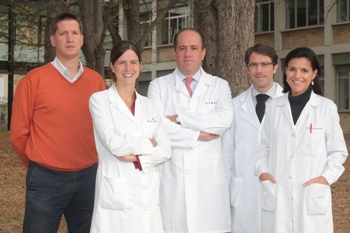El consentimiento informado de los padres en la investigación con adolescentes no siempre es la mejor opción
Informed parental consent at research with adolescents is not always the best option.
Researchers from the University of Navarra argue that there are other alternatives to protection, such as, for example, the authorization of the committee school.

Informed parental consent is usually an ethical requirement for research with adolescents. However, in order to perform some scientific programs of study it is not always the best option and other alternatives may be justified to protect young people. This is argued by the team of research of the project Education of Affectivity and Human Sexuality of the Institute for Culture and Society (ICS) of the University of Navarra in a article recently published in the journal BMC Medical Ethics with the degree scroll "Observational research with adolescents: a framework for the management of the parental permission".
The article is the result of the work of the multidisciplinary team led by Dr. Jokin de Irala, from Preventive Medicine and Public Health. The publication, in which professors Miguel Ruiz-Canela, Cristina López del Burgo, Silvia Carlos, Alfonso Osorio and researchers Carmen Calatrava and Carlos Beltramo have also participated, analyzes the factors that determine when active parental permission is necessary and when other alternatives are acceptable, such as, for example, the authorization of the school committee .
Specific criteria are also proposed to help researchers to assess which option is the most appropriate from agreement with the characteristics of the research. These criteria can be applied in a wide variety of research in different areas, such as medicine, sociology, or psychology. In general, these are investigations in which information is obtained from young people through a questionnaire. In each case, the information to be obtained, the age of the participants, their emotional and cognitive development and the place where the study is carried out (a hospital, the high school, a cafeteria, or the Internet) should be assessed.
According to Miguel Ruiz-Canela, first author of work, "the article deals with a complex topic , since it is necessary to combine the freedom of adolescents, the responsibility of parents and the need for research, in such a way as to achieve the maximum benefit for the young people who participate in the research". This publication," he adds, "contributes to filling a gap in the literature on the ethics of research with young adolescents. The result of this work is a recent partnership with researchers from the World Health Organization who are currently working on issues on the ethics of research with adolescents".
The article can be consulted on the following web page.
